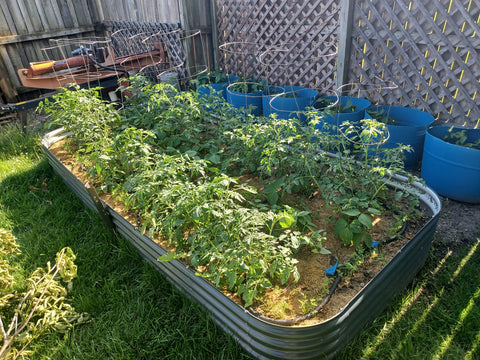7 Reasons Why Gardening Becomes Increasingly Difficult with Age
As people age, many find that they encounter challenges when it comes to gardening. While gardening is a delightful activity, aging can make it increasingly difficult. Here are 7 reasons why gardening may become difficult with age.
1. Decreasing Physical Strength
As people age, their physical strength gradually declines. Many gardening activities require a lot of physical effort, such as tilling soil, mowing lawns, and pruning branches. These tasks can be exhausting for older individuals.
2. Declining Physical Function
In addition to a decrease in physical strength, as people age, their physical functions also gradually decline. For example, eyesight may become worse, and hearing may be impaired, which can impact gardening activities.
3. Joint Pain
As people age, many may experience joint pain. This can make it difficult to perform gardening activities such as bending over, squatting, and twisting.
4. Lack of Time
The older people get, the more limited their time becomes. Many older individuals may need to care for grandchildren or address their own health issues, making it difficult to devote sufficient time to gardening.
5. Lack of Professional Knowledge
Gardening requires some professional knowledge, such as the growth cycle of plants, the use of fertilizers, and pest control. For older individuals lacking relevant knowledge, gardening can become challenging.
6. Lack of Suitable Tools
Gardening requires the use of various tools, such as shovels, lawnmowers, and scissors. For older individuals, these tools may be too heavy or difficult to use, making gardening activities difficult.
7. Lack of Motivation
As people age, they may lose interest or motivation for gardening activities. They may find gardening too tiring or troublesome and give up on this activity.

Overall, aging may have some impact on gardening activities. However, for those who love gardening, they can take some measures to overcome these difficulties and continue to enjoy the pleasure of gardening. For example, choosing gardening activities that are suitable for their age and physical strength, planting in raised garden beds instead of in the ground, or using lightweight tools to perform gardening activities. Additionally, seeking help from professionals, such as consulting with gardening experts or asking someone to help with more complex gardening activities. They can also join local gardening clubs or community gardening projects to share experience and knowledge with other enthusiasts. Most importantly, maintaining a positive attitude and enjoying the pleasure and sense of achievement that gardening brings.
While maintaining physical health, older individuals can maintain their vitality and health through gardening activities. Gardening can promote blood circulation, enhance heart and lung function, and help reduce stress and anxiety. Additionally, gardening can help older individuals maintain social connections, enhance social skills and sense of belonging. Therefore, older individuals should overcome difficulties and actively participate in gardening activities to gain physical and mental health and enjoy life.

